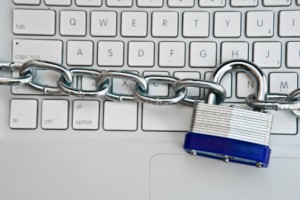Schools that receive discounts for Internet access through the federal E-rate funding are required to implement a number of measures, like creating an Internet safety policy and filtering and blocking access to certain types of online content. To that end, The Children's Internet Protection Act, CIPA, addresses concerns about the type of online materials that children can access at school.
We've written several times about some of the frustration and confusion that CIPA and filtering causes, and we've talked to the Department of Education's Karen Cator for clarification about what the law really requires.
But as more schools begin to implement one-to-one computer programs, providing each student with a laptop or a net-book or even an iPad, there are new wrinkles in thinking about CIPA. After all, these devices are meant to be used at school and at home.
Currently most schools filter their network. There are a number of ways in which they do this, and a number of companies that they turn to for the technology to do so.
But if schools are just filtering the Internet on the premises, what happens when students take their computers home? How do schools monitor or block access to Web sites when students are using their school-provided laptops on their family's home networks? And are they even required to do so?


